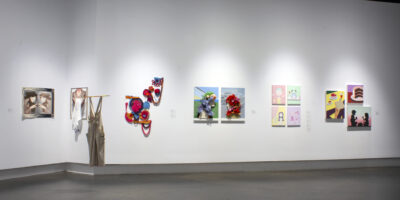“Dearly beloved, we are gathered here today to get through this thing called life. Electric word life, it means forever and that’s a mighty long time. But I’m here to tell you, there’s something else: the afterworld.” And so begins the spoken word intro of Purple Rain, Prince’s sixth studio album, which was released on this day 30 years ago. So instead of writing about a new album this week I’m going to dedicate this space to commemorating this album, my favourite album of all time.
I’m not one to put “classic” music on a pedestal. Most of my favourite albums come from this millennium, though I’ve spent a lot of time with “classic” albums as well. I love a great deal of them and appreciate their huge influence on contemporary artists, but I also find many of them just sound dated: a product of their place and time. Which is what makes Purple Rain so fascinating. It is truly a timeless album. Each of the tracks, from the melodramatic ballad “The Beautiful Ones” to the shimmery pop of “I Would Die 4 U,” sound fresh and could have been easily released last year. It isn’t so much ahead of its time as it is ahead of time, with its perfect fusion of rock, disco, RnB, new wave, and even metal. No album before or since has so deftly captured so many disparate elements and managed to meld them together into 9 immaculate tracks.
I could go on about the music for ages: how the bass-less “When Doves Cry” is still one of the funkiest songs ever released, how the sprightly piano on “I Would Die 4 U” gives the track a jittery soul, how the extremely spare arrangement on “Purple Rain” still lends itself beautifully to broken resignation of the lyrics. But the most captivating part of this album isn’t the music. Instead, it’s the lyrics and the emotional intensity with which they’re delivered.
The intro detailed at the beginning of the article sets the tone of the album, with Prince using real, earth-bound relationships to ground his metaphysical musings on love, death, devotion and loss. “When Doves Cry,” possibly Prince’s most famous song, spends it’s time shifting violently from unrequited yearning to anger and desperation: “why do we scream at each other? / This is what it sounds like, when doves cry.” The aforementioned “The Beautiful Ones” is one of the most visceral ballads ever written, with Prince begging his lover to choose between him and another man and spending the last portion of the song wailing “Do you want me / Or do you want him? / Because I want you.” This could most definitely come across as melodramatic if not for the utter conviction with which Prince delivers the line. For someone coming into Purple Rain for the first time, the pained screaming which permeates much of the album can be unsettling, since Prince-as-soul-singer is how most people associate him. Even on the most pop-oriented songs, there is a notable sense of urgency: the desperation inherent on “Take Me With U” and the delusional self-aggrandizing on “Baby I’m a Star.” In spite of all this, each song operates as a precise pop song and over half of the tracks had chart success, with “Let’s Go Crazy” and “When Doves Cry” reaching #1 in the US and “Purple Rain,” despite its eight-minute runtime, reaching #2.
From the genesis of his career, Prince knew how to shock and stretch boundaries. He was booed offstage in 1981 while opening for the Rolling Stones for his outfit of underwear, boots, and a trench coat. Although a firmly entrenched act by the time of Purple Rain’s released, he nonetheless continued to shock. The sexually explicit lyrics of “Darling Nikki” earned Purple Rain the first ever Parental Advisory sticker, which is now ubiquitous. Themes of androgyny and sexual frustration were also explored fully on Purple Rain, on “Darling Nikki” most notably, but also on nearly all of the tracks in some capacity.
Purple Rain is a deeply weird record, something that cannot be fully appreciated only through its singles. And although, more than 20 years after his last truly great record, Prince is somewhat of a parody of his former self. Purple Rain still feels vital in a way that very few 30 year old records do. Even if you aren’t a fan of the “classics” or RnB or pop, or don’t think you would be a fan of Prince as an artist, you are doing yourself a disservice by not listening to Purple Rain. Many albums throughout Prince’s illustrious career shone brightly, but none before or after shone as brightly as Purple Rain.




Leave a Reply